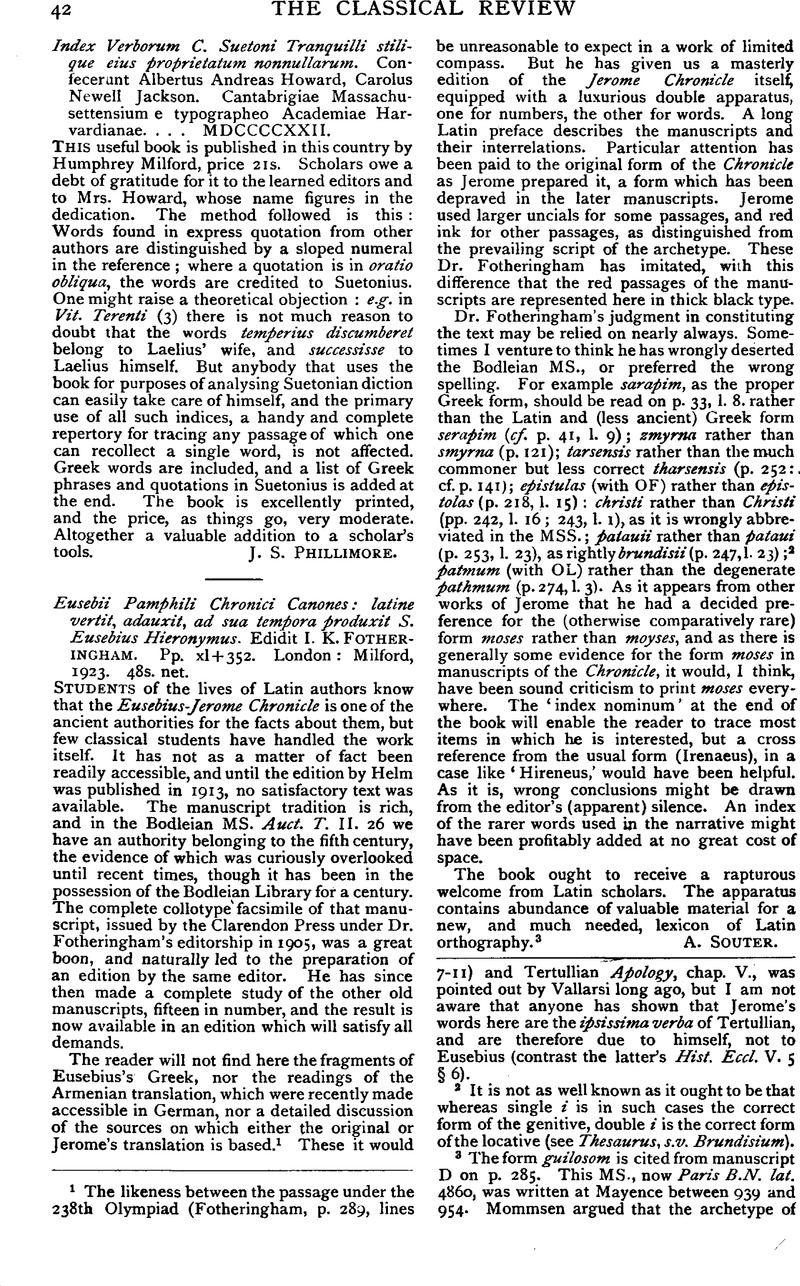No CrossRef data available.
Article contents
Eusebii Pamphili Chronici Canones: latine vertit, adauxit, ad sua tempora produxit S. Eusebius Hieronymus. Edidit I. K. Fotheringham. Pp. xl + 352. London: Milford, 1923. 48s. net.
Published online by Cambridge University Press: 27 October 2009
Abstract

- Type
- Reviews
- Information
- Copyright
- Copyright © The Classical Association 1924
References
1 The likeness between the passage under the 238th Olympiad (Fotheringham, p. 289, lines 7–11) and Tertullian Apology, chap. V., was pointed out by Vallarsi long ago, but I am not aware that anyone has shown that Jerome's words here are the ipsissima verba of Tertullian, and are therefore due to himself, not to Eusebius (contrast the latter's Hist. Eccl. V. 5 § 6).
2 It is not as well known as it ought to be that whereas single i is in such cases the correct form of the genitive, double i is the correct form of the locative (see Thesaurus, s.v. Brundisium).
3 The form guilosom is cited from manuscript D on p. 285. This MS., now Paris B.N. lat. 4860, was written at Mayence between 939 and 954. Mommsen argued that the archetype of the MS. was a Reichenau book (cf. Fotheringham, p. xix). That may be; but the form just quoted indicates a Spanish stage in transmission (cf. the writer's Pelagius's Expositions of Thirteen Epistles of St. Paul I. [Cambr., 1922], pp. 253 f.).




